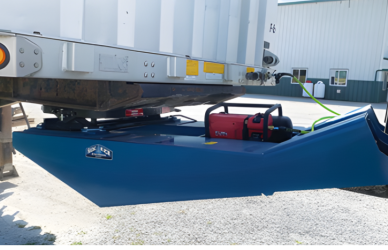Truck drivers often wonder, “Why don’t diesel engines come with spark plugs like gas-powered engines?” The secret lies in how diesel engines ignite fuel differently than their gasoline counterparts. Both types of engines rely on combustion to create power, but the ignition methods vary vastly. This article breaks down the mechanics behind diesel engines, explains why they skip spark plugs, and highlights why they’re perfect for heavy-duty vehicles.
The Core Difference: Spark Ignition vs. Compression Ignition
Gas engines depend on spark plugs to ignite the air-fuel mix by producing a small electric spark—hence the term, spark ignition. Diesel engines, however, operate on a principle known as compression ignition, where the air is compressed to such a degree that it spontaneously ignites fuel without the need for a spark.
Here’s the lowdown on how this works:
In diesel engines, air is compressed to extremely high pressures, which raises its temperature substantially. When this heated air reaches temperatures over 500°C (932°F), diesel fuel is injected into the combustion chamber. The intense heat and pressure ignite the fuel without any spark plug intervention, earning diesel engines the alternative title of “compression-ignition engines.”
How Diesel Engines Achieve Compression Ignition
Diesel engines feature significantly higher compression ratios compared to gasoline engines—often double. This high compression creates the heat necessary for spontaneous combustion when diesel is introduced, eliminating the need for spark plugs and reducing maintenance requirements.
Key Characteristics of Diesel Compression Ignition:
- Higher Compression Ratios: Diesel engines typically boast compression ratios between 14:1 and 25:1, much higher than gasoline engines (usually around 10:1).
- Robust Durability: Diesel engines are built to withstand the high pressures of compression ignition, lending to their long lifespan and rugged reputation.
Why Diesel Engines Skip Spark Plugs
Diesel engines simply don’t require spark plugs due to their reliance on compression ignition, where the air heats up enough to ignite the diesel fuel automatically. This process is distinct from the spark-driven ignition found in gasoline engines.
When the mercury drops, diesel engines may use glow plugs to assist in starting by warming up the combustion chamber to ensure adequate temperatures for ignition. However, glow plugs are only necessary during initial startup in cold conditions and not needed once the engine is running (Li et al., 2017).
The Benefits of Compression Ignition for Truck Drivers
Understanding why diesel engines excel in trucking illuminates their benefits for truck drivers. Here’s why diesel engines outperform in heavy-duty applications:
- Enhanced Fuel Efficiency: Diesel engines are generally more fuel-efficient because they compress air more effectively, promoting complete combustion. This efficiency means less fuel is needed for equivalent power outputs.
- Built to Last: With high compression and strong construction, diesel engines are incredibly durable, capable of covering hundreds of thousands of miles—ideal for long-haul routes.
- Superior Torque: Diesel engines generate higher torque at lower RPMs than gas engines, essential for towing heavy loads. This torque advantage solidifies their dominance in the trucking industry, where power and efficiency are crucial.
Glow Plugs vs. Spark Plugs
While diesel engines forego spark plugs, they sometimes employ glow plugs for assistance. But what distinguishes the two?
- Spark Plugs: Found in gas engines, these ignite the fuel-air mixture with an electric spark.
- Glow Plugs: Used in diesel engines for preheating the combustion chamber during cold starts. They cease function once the engine is actively running.
Glow plugs don’t provide continuous ignition like spark plugs; instead, they help ensure smooth engine starts in colder conditions.
In summary, diesel engines lack spark plugs because they function on compression ignition, where air is compressed to such high pressures that it heats and ignites the fuel without additional help. This design renders diesel engines more fuel-efficient, durable, and powerful—qualities cherished by truck drivers for heavy-duty tasks. Whether you’re traversing long distances or hauling hefty loads, the power of compression ignition makes diesel engines the go-to choice for trucks.











